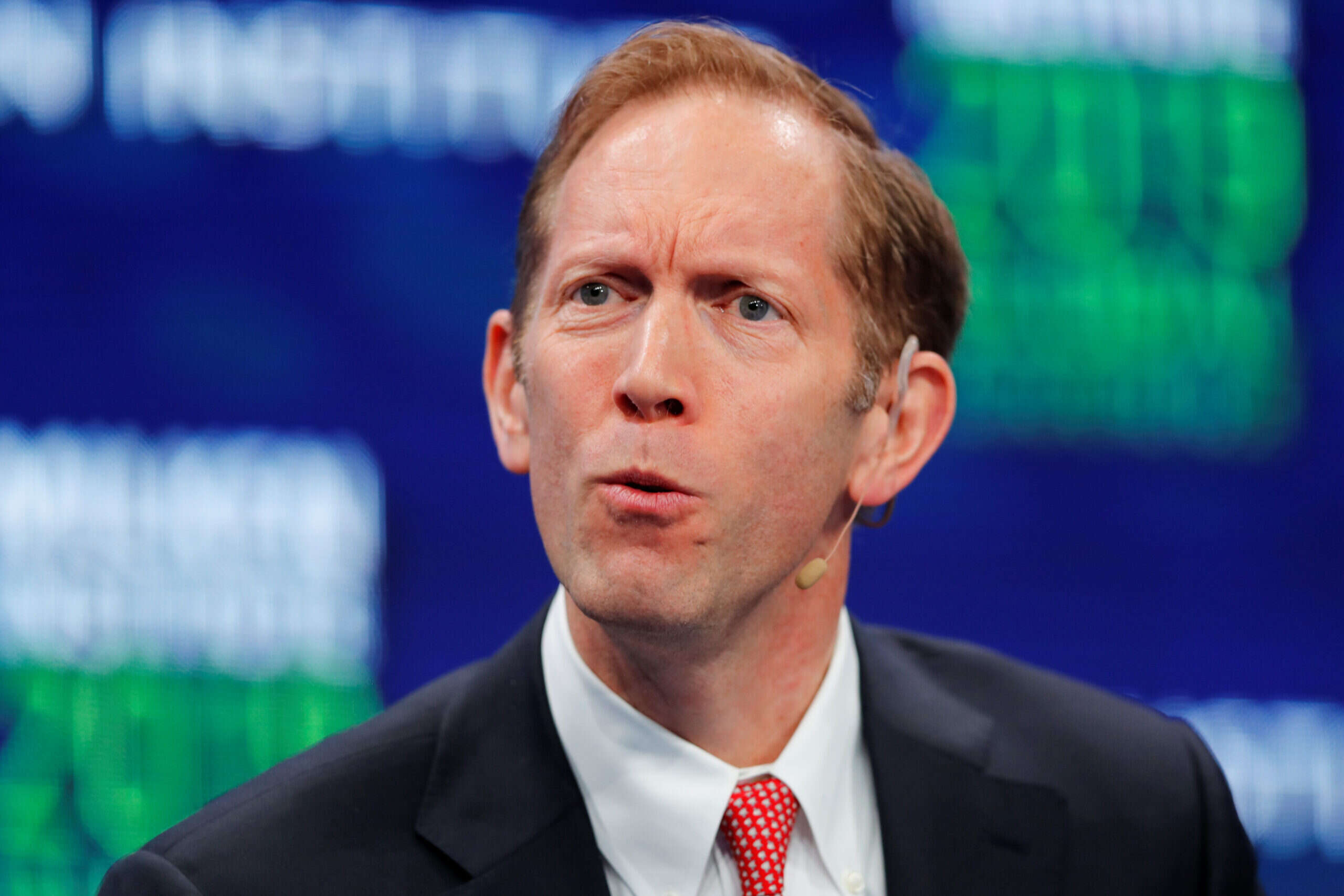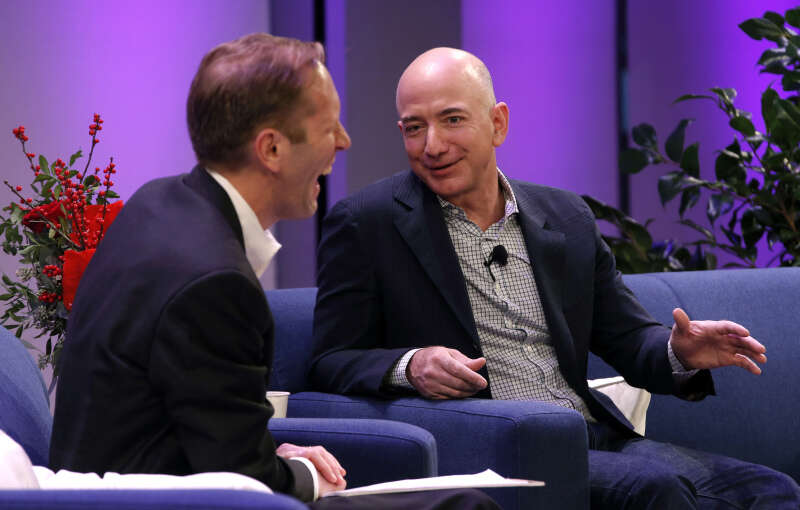
Not too long ago, Business Insider came across as the less trendy younger brother of Buzzfeed, Vice and HuffPost. It had no billion-dollar-plus valuation, its growth appeared steady in comparison, and it didn’t have quite the same street cred.
Nowadays, Insider (it recently dropped the ‘Business’ bit) has not only become slightly cooler – but it also looks as though it might have a brighter, more sustainable future than many of its digital native peers.
Last year appeared to mark a pivotal moment for Insider, which has been owned by German publishing giant Axel Springer since 2015.
As the advertising sector was walloped by Covid-19, most large US digital media companies were forced to make painful cutbacks.
But Insider – which today claims around 250,000 paying subscribers across its news website and B2B operations – held firm. Its revenues are said to have grown by 30% to around $150m in 2020. And, after taking on 226 new employees last year, it now has 781 full-time staff, including 497 in editorial.
How has Insider managed to grow while its digital peers have been in retreat?
“Companies like Buzzfeed and Vice, they have much bigger ambition than we do,” says chief executive Henry Blodget, a former financial analyst who co-founded Insider in 2007, in a phone interview.
“Buzzfeed was modelling itself as an entertainment company with a news division. Whereas we want to be a journalism company. We’re not trying to build the Disney piece.
“That’s a big difference and that focus has helped us a lot. And again, it forced us to build a model that was sustainable for journalism – not something that is news funded by another part of the organisation.”
Although Axel Springer’s 2015 takeover valued Insider at nearly $450m, the firm never had as much money to play with as Buzzfeed and Vice. NBCUniversal pumped $400m into Buzzfeed (giving it a peak valuation of $1.7bn), while Vice was valued at $5.7bn thanks to investments from Walt Disney and private equity group TPG.
“Companies like Buzzfeed and Vice and others raised hundreds of millions of dollars. It’s wonderful to have that in a way – you can do huge, ambitious things. But if there is a virtue to having far less money – we raised just over $50m over eight years – it’s that you have to focus and figure out how the business works in relatively short order, or you run out of money.
“That discipline helped us a lot. And it taught us at a very early stage that we needed to do that. We’ve invested in things that have worked and we’ve stopped doing things that haven’t worked, and that has helped a lot.”
Were the large, ten-figure valuations attracted by other media start-ups ever realistic?
“In those years, the growth rates of a lot of the companies were spectacular – it was just a question of whether they were sustainable.
“And I think that one of the things the industry has learned is that if your main model is purely custom advertising, there is a natural limit to how big those businesses can get.
“I think the industry has learned that over time. If everybody had perfect foresight, maybe the valuations would have been lower.”
Banned from Wall Street, saved by Martha Stewart, backed by Bezos
Born in 1966 and brought up in New York, Blodget dabbled in journalism after graduating from Yale before making his name in the 1990s as a technology company analyst on Wall Street.
“I had a front-row seat at the dotcom boom and crash,” he says, adding that being an analyst was “very similar to being a journalist – you’re giving a beat, and you have to do good work in the beat.
“There are some differences,” he adds. Like, you earn more money? “Yes. In general, you do. That’s one of the nice benefits of Wall Street.”
Covering tech companies during the dotcom boom, Blodget became one of America’s best-known analysts. But his Wall Street career came to a sticky end when (in the words of Insider itself) he was “keelhauled” by the attorney general as part of a post-dotcom bust crackdown on conflicts of interest within the broking sector. Blodget settled the case against him for $4m, without admitting or denying the charges, and was banned from the securities industry for life.
“As you say, yes, I didn’t have a particularly graceful dismount from the industry,” he says. “When all the legal stuff happened, and I settled, I agreed not to work in the industry anymore.
“I thought, oh my goodness, my professional career is over – who would ever work with me?”
With Wall Street now closed off to him, Blodget returned to journalism, first making his name by covering Martha Stewart’s insider trading trial for Slate in 2003.
In 2007, Blodget became the founding editor of Silicon Alley Insider, a blog that set out to cover New York’s technology sector.
“Right from the get-go, our mission for the first year was to figure out a new medium and figure out how to tell stories in the medium that would be valuable to people and build an audience,” he says. “And to try to build an audience before we ran out of money – which was going to be about a year on the clock.”
[Read more: Insider editor-in-chief Nicholas Carlson says news outfits that can survive Covid-19 crisis will later thrive]
According to an old blog post by Blodget, Silicon Alley Insider made revenues of $39,495 in 2007. By 2010, after it had rebranded as Business Insider, the company’s turnover hit $5m and it made a profit of $2,127.
Blodget secured a major financial (and symbolic) victory in 2013 when Amazon billionaire Jeff Bezos – an acquaintance from his analyst days – invested in the business. In a note to staff at the time, the co-founder explained: “Jeff’s investment grew out of a dinner he and I had about a year ago. We talked about the business, and he was excited about it. (He sees some parallels with Amazon). A few months later, he expressed an interest in investing. My reaction was basically ‘Hell, yeah!'”
Two years later, German publisher Axel Springer bought Insider in a deal valuing the start-up at $443m. Blodget, who is thought to have made tens of millions of dollars from the deal, stayed at the company as chief executive and editor-in-chief.
‘There are way too many [news] companies’
Just over five years on and Blodget today remains chief executive of Insider ( he surrendered his editor-in-chief position to his long-time colleague Nicholas Carlson in 2017).
Still owned by Axel Springer, Insider has expanded both organically and through acquisitions in recent years. Insider Intelligence, a B2B division launched in 2015, merged with eMarketer last year. And the group also now owns business newsletter start-up Morning Brew.
Insider has more than 100,000 paying subscribers to its news site (it launched its Prime service in 2017). Blodget says that the group overall now has around 250,000 subscribers across its news site and B2B operations.
Insider’s growing subscription business means it is now less dependent on advertising, and this is one of the reasons it was able to continue growing through the Covid-19 crisis.
What does the future hold for the wider digital media sector? Will more companies merge, as BuzzFeed and HuffPost did last year? Will Insider continue growing through acquisitions?
“I think the industry will continue to consolidate,” says Blodget. “I think the main problem is there are way too many companies.
“And that’s not just the digital start-ups or new companies – it is every surviving legacy media company, who now realise that digital is a big part of the future. They’re directing enormous resources into their digital, and so you have a lot of very well-funded companies doing that.
“And the number of people coming online is not growing as fast as it was, so there’s a finite attention span that we are all working with.
“What the internet has done is destroy the natural barriers that protected a lot of media businesses. So for example, a newspaper is a physical stack of paper that had to be delivered to your door. You don’t need that. You don’t need one of 13 channels, or 500 cable channels – anybody can do anything online.
“So you’re competing with everybody, a click away. So a lot of the barriers were removed. So what the industry will continue to do is go through a period of shake-out and consolidation.
“Eventually, some really strong companies will continue to do very well, and we certainly hope to be one of them. In terms of our own patterns, we remain eager to look at potential partners but we’re also confident in our organic growth, so it’s not something we have to do.”

Blodget with Amazon founder Jeff Bezos, who was an early Insider investor REUTERS/Mike Segar
There are still ‘tons of opportunities’ in journalism
Blodget’s assessment – that there are too many news media companies fighting for the same space – may at first seem like a grim one for the journalism industry.
But he still believes there are “huge opportunities” for new outlets to thrive if they start out as he did with Silicon Alley Insider – by picking a “particular topic and doing it better than anyone is doing it”.
We don’t just have to take his word for it, says Blodget, as he recalls the meeting he had with Jeff Bezos ahead of his Insider investment.
“In the middle of dinner he said, ‘So tell me about your business.’
“And so I told him about the business.
“And he said, ‘You know, I like your business.’
“And I said, ‘Well, that’s surprising. Because everybody else can’t stop telling me how terrible the business is. What do you like about the business?’
“And he said, ‘Well, in the technology industry, it’s usually the winner take all. The number one gets 95%, the number two gets 4% and everybody else fights for the crumbs, and that’s it.’
“He said, ‘Your industry is like our industry – retail. In retail, there are always going to be thousands of providers. You don’t have to kill everybody. You just have to get a bit better every year and then eventually you have a big business. Media seems the same.’
“And he was 100% right.”
Blodget adds: “I think that the big problem facing journalism these days is that there’s actually way too much general capacity. There are so many publications that do the same thing, which is sort of offer news about the same topics. So that is very difficult.
“But with the internet, you can reach anybody around the world 24 hours a day with a single web page. There are massive communities of interest that will consume a huge amount more editorial, good editorial, than are available to them now.
“So I think there are tons of opportunities.”
Top photo credit: REUTERS/Mike Blake
Email pged@pressgazette.co.uk to point out mistakes, provide story tips or send in a letter for publication on our "Letters Page" blog
